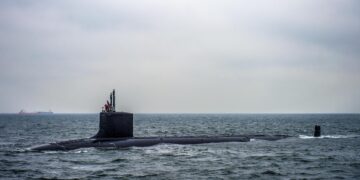March 8, 2023
U.S.-China conflict is hardly inevitable—but a sound strategy is overdue
FOR IMMEDIATE RELEASE:
March 8, 2023
Contact: press@defensepriorities.org
WASHINGTON, DC—Yesterday, the Chinese Foreign Minister Qin Gang warned that the U.S. and China are on a path that will lead to conflict. This follows Chinese President Xi Jinping’s remark accusing the U.S. of attempting to contain China. Defense Priorities Director of Asia Engagement Lyle Goldstein issued the following statement in response:
“Harsh rhetoric from Beijing reflects inevitable jostling among superpowers. China is confronting hefty challenges, whether reckoning with the legacies of the pandemic, managing the pitfalls of the ambitious belt and road strategy, or wrestling with the dilemmas of its quasi-alliance with Russia.
“The U.S. remains in a relatively strong position. Its allies around the world are asking for additional help. It has managed to shed the burden of Afghanistan, so that it can concentrate on regions of greater importance. Notably, in the Asia-Pacific region, the U.S. remains in an unassailable situation, with little direct threat from China. Washington enjoys the advantage of ‘defense in depth,’ so that it need not be particularly perturbed by China’s occasional scrapping with its neighbors. There is an imperative to avoid overreacting to matters of little consequence.
“Despite America’s inherently strong position with respect to China, Washington should take prudent steps, especially in the era of nuclear weapons, to tamp down tensions. The U.S. should play hard ball in the economic realm, protecting American intellectual property and fighting trade restrictions. However, a policy of realism and restraint in the Asia-Pacific also has ample space for cooperative diplomacy, de-escalation of regional flashpoints, and even arms control. Above all, the U.S. must avoid drawing a red line over Taiwan–the only major volatile and contested issue that could plausibly lead to catastrophic armed conflict with China. Reactionary policies or virtue-signaling are no substitute for a coherent, moderate, and feasible strategy to advance vital U.S. interests.”
More on Asia

Featuring Dan Caldwell
July 13, 2025

By Jennifer Kavanagh and Dan Caldwell
July 9, 2025

Featuring Jennifer Kavanagh and Dan Caldwell
July 9, 2025

Featuring Lyle Goldstein
July 4, 2025





